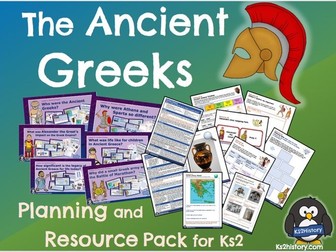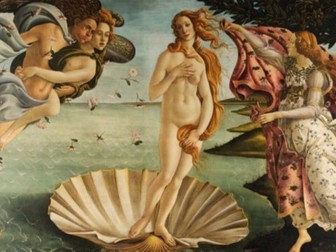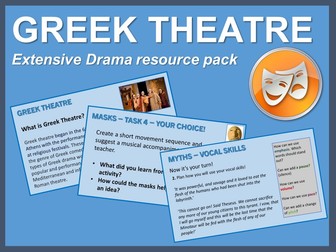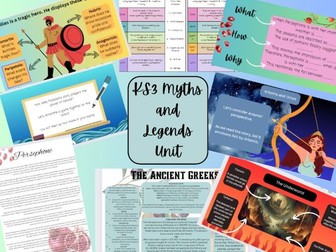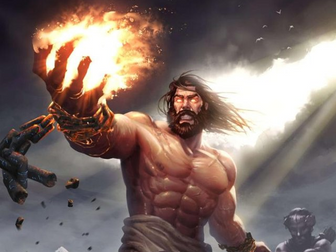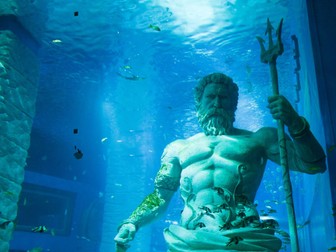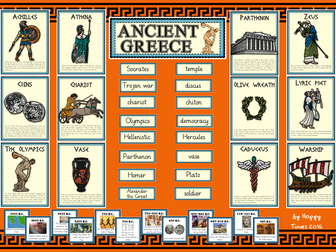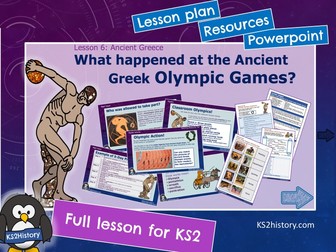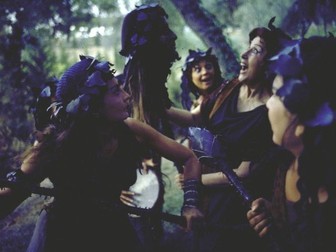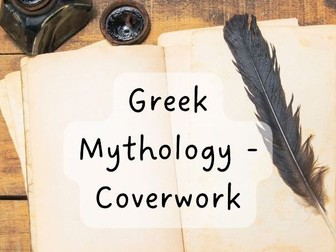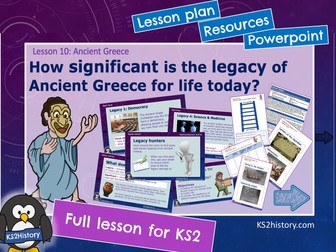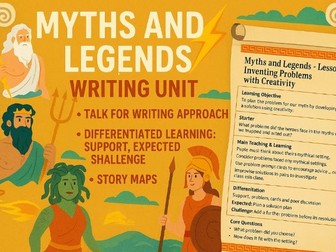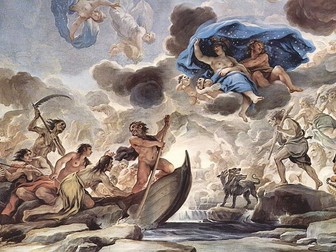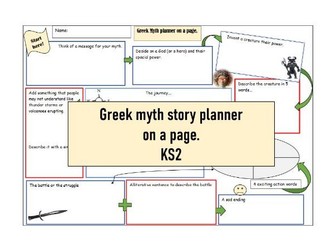Ancient Greeks Planning
Ancient Greeks: 10 lessons for KS2
A fully-resourced unit of 10 history lessons for KS2, covering the Ancient Greece topic.
What you get:
10 lesson Powerpoint files
10 detailed lesson plans
Teachers’ notes, including curriculum coverage
Pupil activity sheets for all lessons
About the Unit
The ten sessions in this unit aim to give an overview of life in Ancient Greece, including a focus on its achievements and influence on the western world. As with all of the KS2History unit plans, there is an emphasis on allowing pupils to consider the sources of evidence that form our understanding of this period of world history.
Aims of the Unit
To gain an overview of significant people, places and events from Ancient Greece
To contrast daily life in Ancient Greece with modern day lifestyles ! To consider broader historical context, particularly with regards to the expansion of the Ancient Greek empire and lasting legacy
To become familiar with historical sources, debates and accurate vocabulary relating to Ancient Greece
Lessons in the Pack
Who were the Ancient Greeks?
Why were Athens and Sparta so different?
What was Alexander the Great’s impact on the Greek empire?
Why did a small Greek army win the Battle of Marathon?
What were the Ancient Greek gods known for?
What happened at the Ancient Greek Olympic Games?
What were the Ancient Greek philosophers famous for?
Did the events of the Trojan Horse story really happen?
What was daily life like for children in Ancient Greece?
How significant is the legacy of Ancient Greece for life today?
This pack contains everything you need to teach this unit, including differentiated activity ideas so that it can be adapted to the needs of your class. The Powerpoint text is also editable.
This pack is brought to you from Ks2history
